Hungary, located in Central Europe, is a landlocked country known for its varied and picturesque geography. The country spans an area of approximately 93,030 square kilometers (35,920 square miles) and is bordered by Austria, Slovakia, Ukraine, Romania, Serbia, Croatia, and Slovenia. Hungary's landscape is characterized by its river systems, plains, and hills, each contributing to the country's unique natural beauty and agricultural productivity.
 The Great Hungarian Plain, or Alföld, dominates the eastern and southeastern part of the country. This vast, flat expanse is one of the most fertile agricultural regions in Europe, producing crops such as wheat, corn, and sunflowers. The plain is also known for its traditional Hungarian livestock, including horses and cattle, which are often seen grazing in open pastures.
The Great Hungarian Plain, or Alföld, dominates the eastern and southeastern part of the country. This vast, flat expanse is one of the most fertile agricultural regions in Europe, producing crops such as wheat, corn, and sunflowers. The plain is also known for its traditional Hungarian livestock, including horses and cattle, which are often seen grazing in open pastures.
In contrast, the western part of Hungary features the Transdanubian region, marked by rolling hills and low mountains. The Transdanubian Mountains, including the Bakony and Vértes ranges, provide a picturesque landscape of forests, vineyards, and orchards. Lake Balaton, Central Europe's largest freshwater lake, is situated in this region. Known as the "Hungarian Sea," Lake Balaton is a popular destination for tourists, offering opportunities for swimming, sailing, and fishing.
The Danube River, one of Europe's major waterways, flows through Hungary from north to south, including the capital city, Budapest. The river splits the city into two parts: Buda, with its hilly terrain and historic sites, and Pest, known for its flat landscape and bustling urban life. The Tisza River is another significant watercourse, flowing through the eastern part of the country and providing vital irrigation for agriculture.
Hungary's climate is temperate, with four distinct seasons. Summers are warm and dry, while winters can be cold, particularly in the northern and western regions. This climatic diversity supports a rich variety of flora and fauna, contributing to Hungary's natural heritage.
Overall, Hungary's geography, with its mix of fertile plains, rolling hills, significant rivers, and a large lake, plays a crucial role in shaping the country's economy, culture, and recreational activities. The diverse landscapes offer both residents and visitors a chance to explore the natural beauty and agricultural richness of this Central European nation.
|
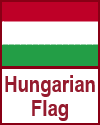
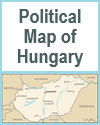
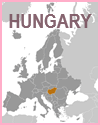

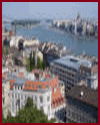
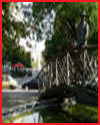
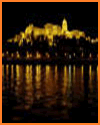





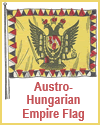
 The Great Hungarian Plain, or Alföld, dominates the eastern and southeastern part of the country. This vast, flat expanse is one of the most fertile agricultural regions in Europe, producing crops such as wheat, corn, and sunflowers. The plain is also known for its traditional Hungarian livestock, including horses and cattle, which are often seen grazing in open pastures.
The Great Hungarian Plain, or Alföld, dominates the eastern and southeastern part of the country. This vast, flat expanse is one of the most fertile agricultural regions in Europe, producing crops such as wheat, corn, and sunflowers. The plain is also known for its traditional Hungarian livestock, including horses and cattle, which are often seen grazing in open pastures.








